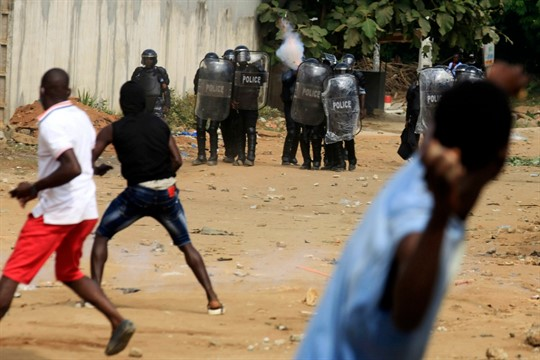
OUAGADOUGOU, Burkina Faso—Daleba Nahounou was a university student in Abidjan, the largest city in Cote d’Ivoire, when a disputed presidential election in 2010 sent rival militias onto the streets.* The ensuing months of violence claimed 3,000 lives across the country and led to an international war crimes tribunal. “It was tragic,” Nahounou, who now helps lead a civil society organization called the Coalition of the Indignant of Cote d’Ivoire, told World Politics Review. “We have the same feeling that it could happen today.”
Tensions are high in the country after President Alassane Ouattara, the opposition candidate and eventual victor in the 2010 contest, recently announced he would stand again for a controversial third term in this year’s election, scheduled for Oct. 31. Just five months ago, he had announced his imminent retirement, pledging to “transfer power to a new generation.” But the 78-year-old Ouattara reversed course after Prime Minister Amadou Gon Coulibaly, who was to be the presidential candidate for the ruling Rally of Republicans party, died of a heart attack last month. Hundreds of demonstrators took to the streets to protest Outtara’s decision last week, sparking violent clashes with security forces and Ouattara’s supporters in some parts of the country that left at least four people dead. Around 58 protesters were arrested, 45 of them in Abidjan, according to local media. In some cases, police reportedly allowed men armed with clubs and machetes to attack demonstrators
